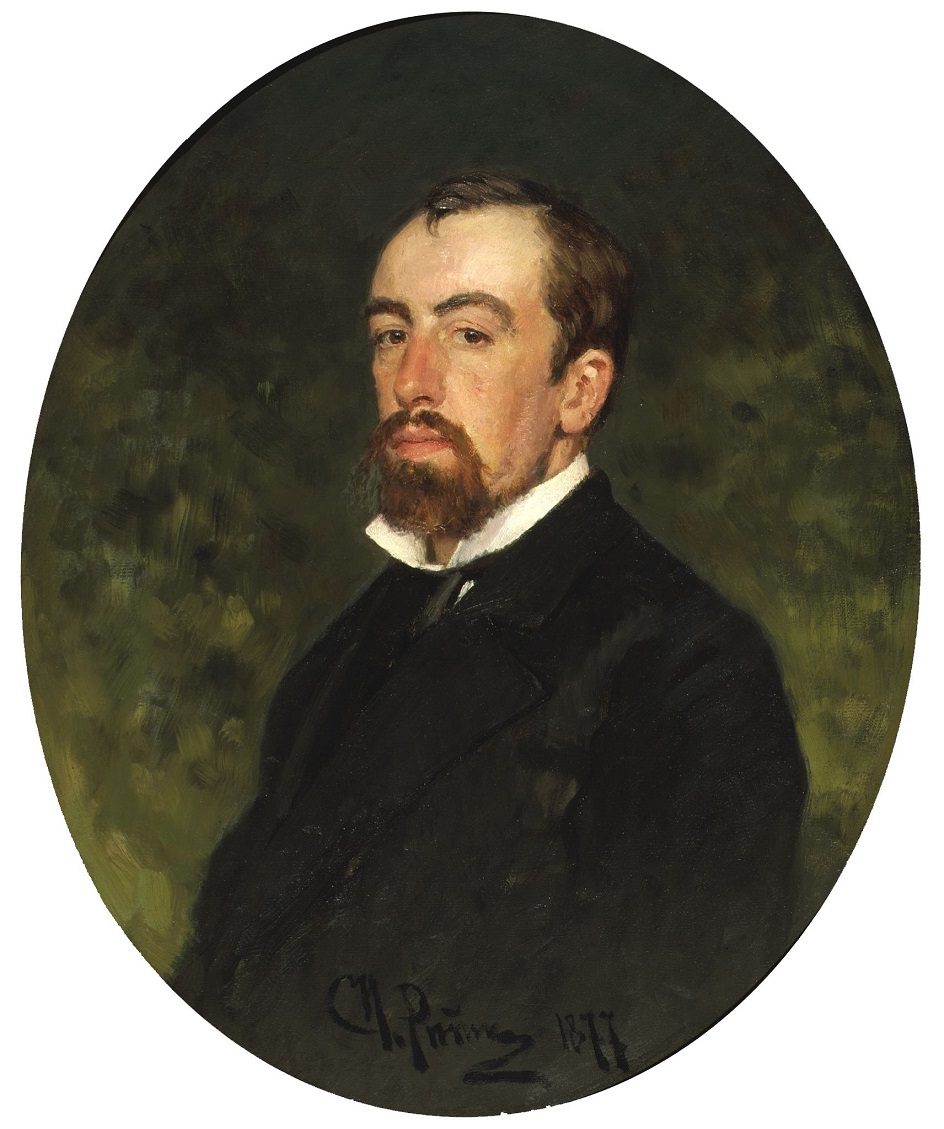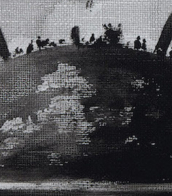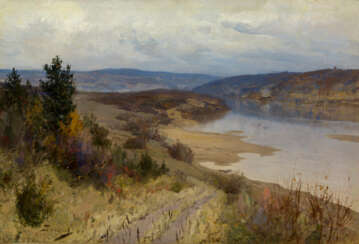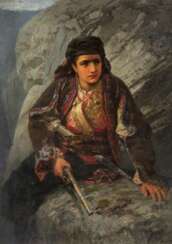василий дмитриевич поленов (1844 - 1927)

Vasily Dmitrievich Polenov (Russian: Васи́лий Дми́триевич Поле́нов) was a distinguished Russian painter, celebrated for his contribution to landscape and historical painting. Born into an enlightened family in St. Petersburg in 1844, Polenov's artistic journey was nurtured by both his heritage and formal education at the Imperial Academy of Arts. His mastery in capturing the serene beauty of the Russian countryside and his innovative approach to biblical themes have cemented his place in the annals of art history.
Polenov's artistry was marked by his pioneering use of plein air painting, a technique that brought a fresh vibrancy and realism to his landscapes. Works such as "Moscow Courtyard" (1878) and "Overgrown Pond" (1879) not only showcase his technical prowess but also reflect his profound connection to Russian rural life and nature. His depiction of biblical scenes, notably in "Christ and the Sinner" (1886–87), broke new ground by intertwining these sacred stories with his love for landscapes, imbuing them with a unique sense of place and time.
A notable period in Polenov's career was his travels in Europe, where encounters with artists and cultures deeply influenced his work. Despite these influences, it was his Russian vistas that garnered the most acclaim, demonstrating his ability to infuse landscapes with a deeply personal and nationalistic sentiment. His commitment to art was intertwined with his belief in its power to evoke happiness and joy, a philosophy that guided his teaching career at the Moscow School of Painting, Sculpture and Architecture, where he mentored future luminaries of Russian art.
Polenov's legacy extends beyond his paintings. His estate, Polenovo, near Tarusa, has been transformed into a national art museum, ensuring that his contributions to Russian art and culture continue to inspire future generations. This dedication to the arts was recognized by his appointment as a People's Artist of the USSR in 1926, a testament to his enduring impact on the cultural landscape.
For art collectors and experts, Polenov's work represents not just aesthetic beauty but a rich narrative of Russia's cultural and natural heritage. His paintings, held in prestigious galleries like the State Tretyakov Gallery and the State Russian Museum, offer a window into the soul of Russian art, marked by a quest for harmony and a deep reverence for the natural world.
For those interested in exploring the works and legacy of Vasily Dmitrievich Polenov further, signing up for updates on new product sales and auction events related to his art can provide valuable insights into his enduring influence. This subscription is an opportunity to stay connected with the world of one of Russia's most beloved artists, ensuring access to the latest offerings and scholarly research surrounding his oeuvre.


Vasily Dmitrievich Polenov (Russian: Васи́лий Дми́триевич Поле́нов) was a distinguished Russian painter, celebrated for his contribution to landscape and historical painting. Born into an enlightened family in St. Petersburg in 1844, Polenov's artistic journey was nurtured by both his heritage and formal education at the Imperial Academy of Arts. His mastery in capturing the serene beauty of the Russian countryside and his innovative approach to biblical themes have cemented his place in the annals of art history.
Polenov's artistry was marked by his pioneering use of plein air painting, a technique that brought a fresh vibrancy and realism to his landscapes. Works such as "Moscow Courtyard" (1878) and "Overgrown Pond" (1879) not only showcase his technical prowess but also reflect his profound connection to Russian rural life and nature. His depiction of biblical scenes, notably in "Christ and the Sinner" (1886–87), broke new ground by intertwining these sacred stories with his love for landscapes, imbuing them with a unique sense of place and time.
A notable period in Polenov's career was his travels in Europe, where encounters with artists and cultures deeply influenced his work. Despite these influences, it was his Russian vistas that garnered the most acclaim, demonstrating his ability to infuse landscapes with a deeply personal and nationalistic sentiment. His commitment to art was intertwined with his belief in its power to evoke happiness and joy, a philosophy that guided his teaching career at the Moscow School of Painting, Sculpture and Architecture, where he mentored future luminaries of Russian art.
Polenov's legacy extends beyond his paintings. His estate, Polenovo, near Tarusa, has been transformed into a national art museum, ensuring that his contributions to Russian art and culture continue to inspire future generations. This dedication to the arts was recognized by his appointment as a People's Artist of the USSR in 1926, a testament to his enduring impact on the cultural landscape.
For art collectors and experts, Polenov's work represents not just aesthetic beauty but a rich narrative of Russia's cultural and natural heritage. His paintings, held in prestigious galleries like the State Tretyakov Gallery and the State Russian Museum, offer a window into the soul of Russian art, marked by a quest for harmony and a deep reverence for the natural world.
For those interested in exploring the works and legacy of Vasily Dmitrievich Polenov further, signing up for updates on new product sales and auction events related to his art can provide valuable insights into his enduring influence. This subscription is an opportunity to stay connected with the world of one of Russia's most beloved artists, ensuring access to the latest offerings and scholarly research surrounding his oeuvre.




